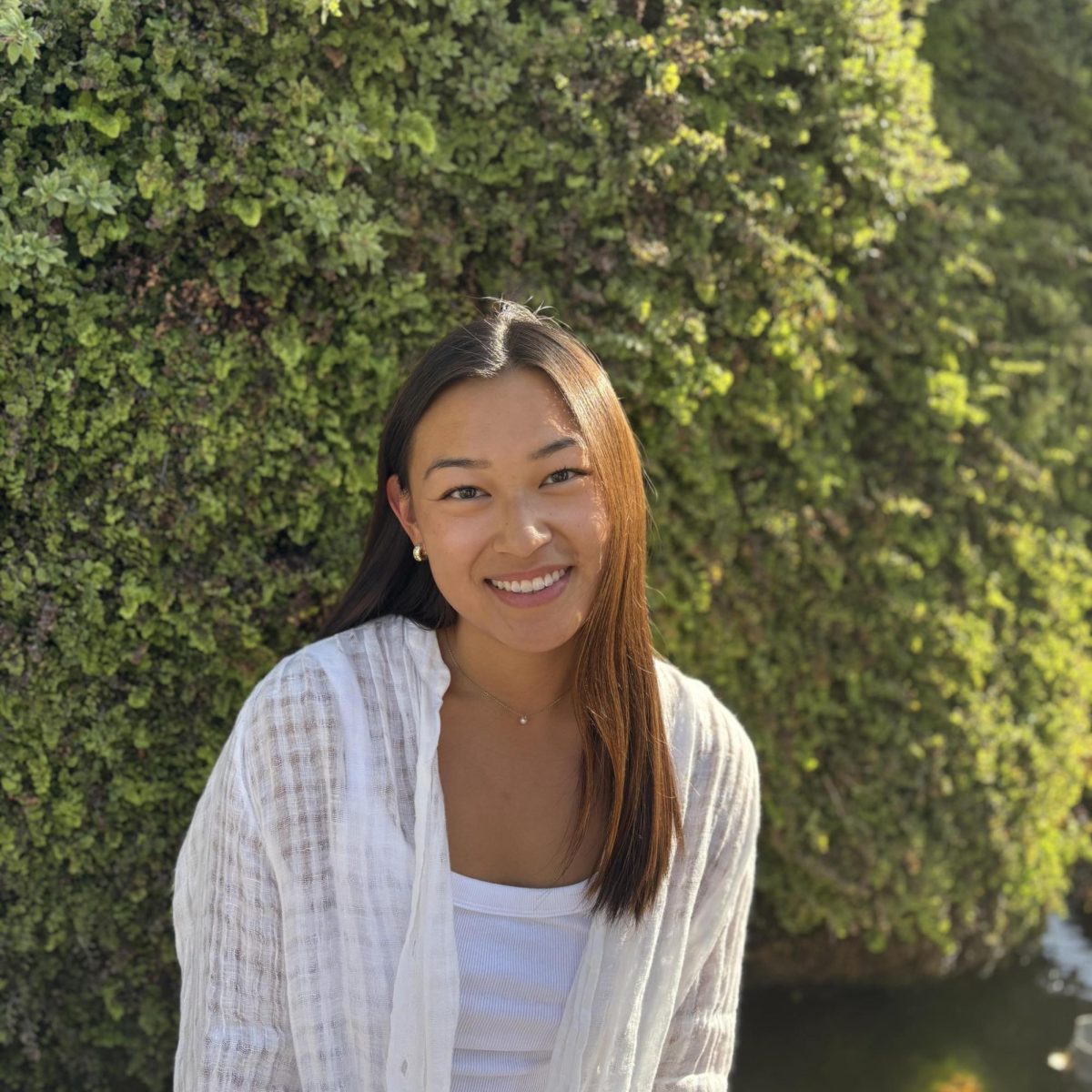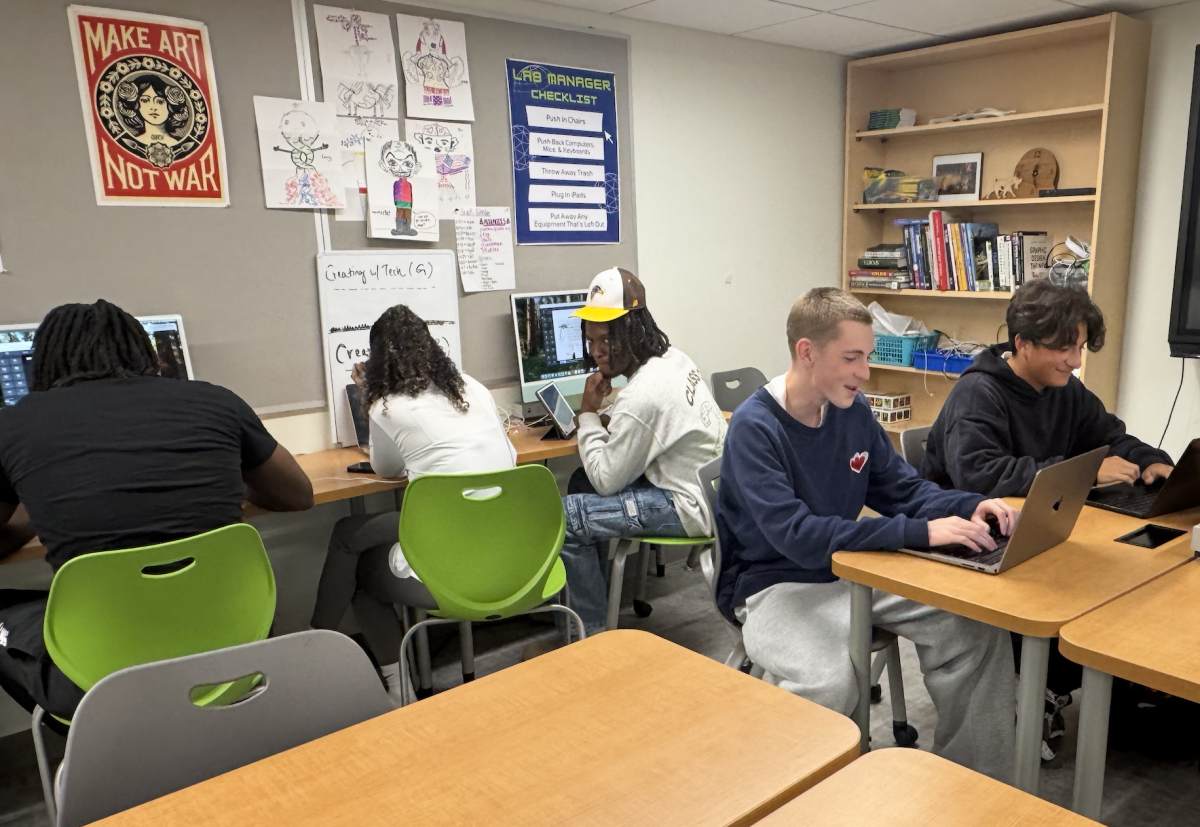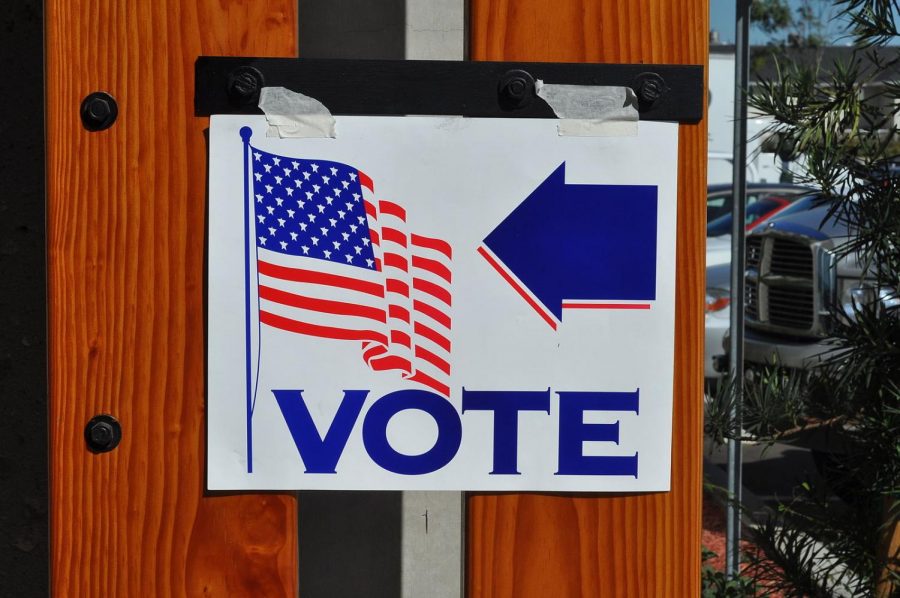Coming of Age in an Election Year: FSS Seniors Feel Insurmountable Pressure
On April 28th, 2020, Pennsylvania residents from Pittsburgh to Philadelphia will find their way to local community centers, churches, and public schools. They will take time out of their day to wait in line, possibly for hours, all to stand behind a drab curtain and press a few buttons on a plastic machine.
However irritating or nonsensical the experience of voting may seem, elections, whether for local congressmen, the national legislature, or a presidential nominee, have lasting implications that affect the individual citizen in different ways: Higher taxes? Cheaper healthcare? Cleaner air?
In reality, voting is the epitome of our modern American democracy, the people’s only opportunity to say if they want higher taxes, cheaper healthcare, or cleaner air. For the first time in their lives, many FSS students will be allowed to partake this April.
Four years ago, Donald J. Trump, a well-known television personality and New York businessman, was elected president of the United States of America. Current FSS seniors, then freshman, watched as he rose to power through memes and angry tweets, advocating for nationalism, racism, and xenophobia at every turn.
For many, the idea that Trump would ever hold the position of President was preposterous. However, as the result of the 2016 election, that fantasy became a stirring reality that took time for students like Hannah Feinberg ‘20 to grapple with. “I think for a lot of people, me especially, the 2016 election was eye-opening,” she says. “We grew up in what felt like this time of progression and positivity with Obama as president. In 2016, that ended.”
Hannah, 15 and unable to vote at the time, could only turn to adults and ask, “How did this happen?”
This election will be different. Now, because Hannah is 18, she has both the opportunity and responsibility to impact this upcoming election. For her and her peers, that notion has engulfed a fire in their bellies and created a hunger to redirect their future.
This sentiment was hailed by Cauldron and Environmentalism club leader, Olivia Maltz ‘20. She says, “Young voters need to come out for this election. They absolutely need to. The adults couldn’t handle 2016, and I think it’s the only way we have a chance of beating Donald Trump.”
Someone else in the community who feels this passion for empowering young voters is co-student body president, Alec Kane ‘20. Whether sharing his thoughts in devotions or passing out registration forms in the halls, Alec has been vocal about how important he feels the 2020 election is, and he urges everyone: “If you are eligible to vote, please, register.”
In Alec’s eyes, young people like Hannah and Olivia are the key to a Democratic win in 2020: “They have the power to change this country’s government. People are expecting us, young people, to come out and be this progressive voice, and I believe if we do come out in full force, that certain candidates or parties are far, far more likely to win.”
However, even after all that has occurred during Trump’s presidency, such as the Muller investigation, rape allegations, and an impeachment, Trump’s job approval rating is at an all-time high: 49% overall and 94% with Republicans. As the economy seems to progress and wages increase for the first time since the Great Recession, some have grown progressively more comfortable with Trump and his policies. The anger and need for justice felt by the youth isn’t representative of everyone.
While many FSS seniors remain optimistic, others have begun to question how much their individual vote matters. “I think no matter what we do or who we vote for, there’s a really good chance that Trump will be reelected,” senior class officer and Quake leader, Arley Johnson ‘20 says. While Arley currently fancies himself an Andrew Yang supporter, he thinks the probability that Trump wins again in 2020 is “scary but likely.” He feels like an increasingly messy Democratic primary is at least partially to blame.
Currently, there are more than eight Democratic presidential candidates, and every week, a new candidate is rising, and an old is falling. Months ago, two-term vice president Joe Biden seemed like the obvious choice. Then, it was Massachusetts Senator Elizabeth Warren. Then, Mayor Pete Buttigieg had a contested win in Iowa, Senator Bernie Sanders won New Hampshire, and Senator Amy Klobuchar’s campaign continues to surge.
Most Americans, not only FSS students, are struggling to keep track of the many Democratic candidates and 76% of Democrats remain undecided. For many voters at FSS like Kourtney Hargrove ‘20, this has made election politics seem inaccessible.
“I feel so much pressure about this upcoming election,” she says. “Everyone harps on us seniors about how important it is for us to use our voice and vote, but because there are so many people and policies to try and understand, it feels really hard.”
Kourtney is by no means alone, and this “pressure” she feels is prevalent throughout the Senior hallway. While most FSS students sincerely want to stay informed, being politically engaged has become stressful and confusing.
While Hannah has devoted time to watching debates and researching different candidates, she says, “Forming an opinion is difficult. I try to read different sources, but I can’t trust everything, and I don’t have all the time in the world.”
Hannah says the worst part is, “Politics, as a whole, can be really divisive. Right now, I can see the pros and cons of multiple candidates, and I feel conflicted, but there’s this pressure from my friends and family to agree with what they think. It’s a struggle to have my individual opinion.”
Peter Sun, 10th grade World History teacher, understands the additional stress that may stem from political engagement and is trying his best to help mitigate this through his new second-semester elective, American Presidency. In class, Peter is addressing the most important issues regarding the presidency, answering foundational questions about how the position was created, executed, and changed throughout American History. He hopes to give students the information they need to approach this upcoming election with an accurate understanding of both the candidates and the role of the American President.
While the class has already discussed Trump’s impeachment, the Iowa Caucuses, and the State of the Union address, Peter says that “as the primary season picks up and the field of candidates thins, they will also discuss how the Democrat candidates are trending.” His vision is that “the class provides a forum for students to discuss current events.” For those not in his class, Peter urges all students to stay informed and get their news from reliable sources. He suggests websites like AllSides.com and Politico.
Peter hopes newly eligible voters at FSS know that “it’s their civic responsibility to vote and be an engaged citizen.” Despite the pressures felt by Kourtney and Hannah or the fears of Arley, Peter argues that the individual vote does matter, possibly even more so for those who live in Pennsylvania: “Because Pennsylvania is a swing state, voter action or inaction will have lasting consequences in the years to come.”
Nevertheless, for now, the future of this country and these young voters is uncertain and will likely remain that way over the coming months. “I really do hope young voters are able to fulfill these high expectations,” Alec says. “But the truth is, we don’t know what’s going to happen.”
While Trump remains overwhelmingly popular with Republicans and the Democratic pool becomes more complicated by the day, young voters at FSS who hope to see a change in 2020 must not get discouraged. Whether they are scared, hopeful, or confused, if they want to see changes made to their government, their only option is to get out to the polls, convince whoever they can to wait in those lines with them, and vote.





























